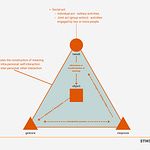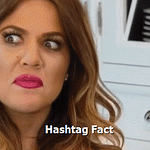I’m Megan J. Robinson, and welcome to Creative\\Proofing, a space for hopeful, creative people learning to live wisely by asking questions about the good life: what it is, how to design our own, and how to live it well.
This newsletter is built on the hope of reciprocal generosity: I want to share what I find beautiful and meaningful, and I'd love for you to do the same. If you're inspired by anything I write, it would mean so much if you shared it with others, subscribed, dropped me a line and let me know, or paid according to the value it has for you. No matter what, I hope we can create and learn together.
As a child, especially as an only child, I entertained myself through endless exercises of creativity: writing and reading, drawing, playing with dolls and making up their life stories, compiling an endless list of “my horses” (complete with names, breeds, and progeny) on an imaginary ranch, acting, and banging on the piano in what I thought of as fantastic medleys. You get the idea.
As I grew older, I continued exploring my creativity, focusing more and more on writing, specifically poetry. I fed my explorations with music, books, movies, photography, museums and galleries (at the time, I lived in DC - free access to art!). Whatever caught my attention and made me think, feel, expand beyond what I knew or guessed about life, the universe, and everything.
To no one’s surprise, I majored in creative writing and poetry in undergrad (at least, at first), where I read recent classics in writing and creativity, like Anne Lamott’s Bird by Bird (practically the ur-text of writers everywhere), Stephen King’s On Writing, and so many others. Because part of my story includes the long reconciliation of being an artist with being a person of faith, I also read Walking on Water, by Madeleine L’Engle, one of the first and earliest books that introduced to me to the reality that art and faith were not only not in direct opposition to one another but were actually best friends whose connection meant only flourishing for human beings, especially myself.
As I finished my undergraduate degree and my interests moved more into the realm of Christian theology, I read fewer books focused on creative writing, having spent enough time, energy, and money on the practice of Being a Writer that I no longer felt such a burning impulse to inhale more books about how to do the work. Eventually, you realize that you might better spend your time actually writing, rather than reading about writing, if you truly want to be a writer. And after a while, all such books begin to blend together, the authors’ advice for routines, practices, techniques boiling down to one key idea: you’ll only find your voice, topic, and rhythm after writing a whole hell of a lot, so sit down and just do the damn thing.
After a while, I decided to attend graduate school, specifically seminary, a departure from the long-expected goal of pursuing an MFA in Creative Writing. What can I say? ”I’m a loner, Dottie, a rebel”. I remember some of the last pieces I wrote before starting classes, an essay on theology and film, a new poem cycle that remains unfinished to this day. Since January 2011, though, my creative well has been drained, filled in, and boarded over, for reasons that remain a bit opaque to me even now. Obviously, writing for grad school requires herculean amounts of text ingested and regurgitated, so it’s not like I never flexed my skills after that, but something in me changed.
I’ve written a little bit here and there over the years since then, but the habit and joy of writing that I used to experience has fallen away. I never wanted to do anything else with my life other than express myself through writing, creativity, and art, so I’ve spent the last twenty-odd years working in various contexts and roles feeling as though I’ve betrayed myself and wondering when I’ll get back to the “real me.”
I recently shared about some significant changes and questions in my life, which has led to me attempting to rediscover and befriend my former, realer self, but mostly, trying to figure out what creativity and making art looks like for me now. I recently realized that, even though I’ve found new interests and topics that engaged my attention, I stopped surrounding myself with all the things that fed my creativity, once upon a time, so I’m trying to change the water in which I swim, or at least my own little fishbowl.
I’m not entirely sure how I came across it, but I recently ordered Andrew Peterson’s book Adorning the Dark: Thoughts on Community, Calling, and the Mystery of Making. I thought, “Eh, we’ll see. I’ve read so many books like this, I probably already know how it’s going to go. But maybe there’ll be something in it.”
Friends. Though Andrew Peterson has no idea I exist, I feel the need to apologize to him for being such an ass. The serendipity of this book in my life at this moment is a grace-note, a blessing. It reminds me of who I used to be, acting as a beacon to the creative self struggling to find her way home, or at least to figure out what home might look like now.
There’s nuggets within each chapter, about practicing hospitality when creating and sharing; about attending to and cultivating your own patch of earth, even if it’s just an office; about seeking out those tales that beget beauty here by building a bridge to the world to come; about writing it like you say it, and speaking honestly about the things of your life and heart.
Here’s a few quotes that really resonated with me right now.
But artists often have a sense that their story, song, painting, or sculpture “wants” to become something, often something quite different from what they intended. [...] It’s like there’s a platonic form of the song out there somewhere, and you get a tiny glimpse of that true form at some stage in the creative act. Half the job is fighting to get the feeble work of your hands as close as possible to that flash of beauty. You have the sense that you aren’t the one who conceived of the thing but are a surrogate mother helping to birth something new into the world.1
I find myself almost scared at the thought of opening myself up to the work like this again, trusting that the flash of beauty will come, but more, trusting that I could be vulnerable enough to listen to the story it carries. But midwifing the things that are startling, beautiful, and true, that comes from someplace beyond oneself—that’s the work I’ve always longed to do.
I began to understand the peril of asking God to let you write songs that would comfort the lonely and brokenhearted—peril, because the only way to do that is to walk through the dark forest of loneliness and heartbreak.2
The year before I went to seminary, I had cancer. Overnight, I went from manufacturing imaginary realities and outsized feelings in what felt like a nondescript, unexciting life, to being thoroughly overwhelmed by an abundance of reality and more feeling than I could handle on any given day. I went from living in my imagination to living in the world around me, and I suppose, in some sense, I no longer felt the desire to live on the page. Life itself became the creative work, trying to piece myself back together, or at least to figure out which pieces were worth saving. When you ask to create work that truly means something, that work will ask something of you as well. Hopefully you’ll come out the other side with some sense of tenderness toward the broken places.
What’s a focal practice? In the simplest terms, it’s something that doesn’t involve a computer screen. [A focal practice has] these criteria: 1) it demands discipline and hard work; 2) it connects us with others (and our own hearts); and 3) it puts us in touch with realities greater than ourselves.3
Like most of us these days, I’ve spent most of the last ten-plus years working in roles that required my eyeballs on a screen for eight-plus hours per day, not to mention my own interests and entertainments usually found online. I’ve started buying physical books again, instead of digital, simply because the weight and minor inconvenience of them reminds me to focus on the moment. But that’s not enough, really. I’m looking for a practice that lets me be an utter n00b at something again, to begin from scratch with learning new things about the world, new skills I never had before, new bridges to the world to come.
If you’re at all interested in a practitioner’s perspective on creativity, making, art, and life, you may find your own nuggets in Adorning the Dark. And if you’re someone who also takes seriously the reality of the Kingdom of God4, Peterson reminds us that the work we do, though small, is by no means insignificant—to you, to your family, to the stranger who stumbles across it one day needing the reminder to make, to practice, to finish, and to hope.
Those of us who write, who sing, who paint, must remember that to a child a song may glow like a nightlight in a scary bedroom. It may be the only thing holding back the monsters. That story may be the only beautiful, true thing that makes it through all the ugliness of a little girl’s world to rest in her secret heart. May we take that seriously. It is our job, it is our ministry, it is the sword that we swing in the Kingdom, to remind children that the good guys win, that the stories are true, and that a fool’s hope may be the best kind.5
Let’s be hopeful, creative, and wise—together.
Shalom,
Megan.
Andrew Peterson, Adorning the Dark, pp. 83-4.
ibid., p. 90.
ibid., p. 191.
I work from within the Christian tradition, and understand the Divine as the Trinity of father, son, holy spirit. That said, I know we all have different ways of understanding God and the Divine, so if you wish to insert [Other] when I use that phrase, please feel free to do so.
ibid., p. 123













